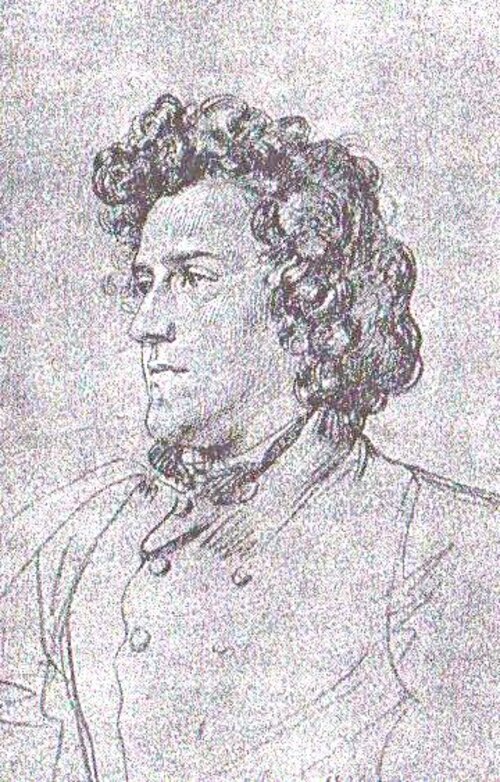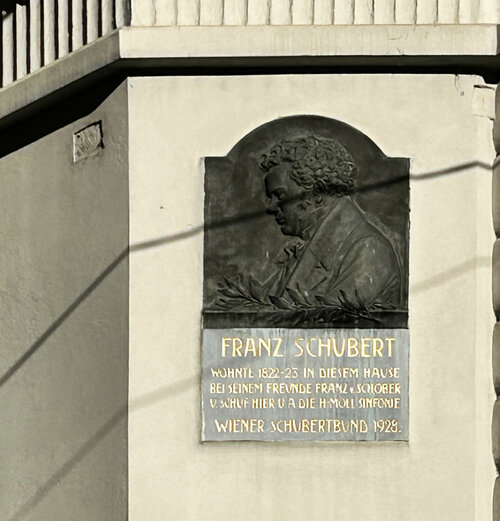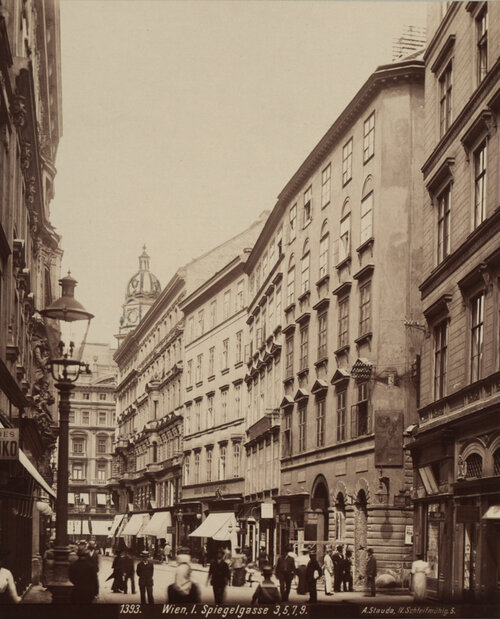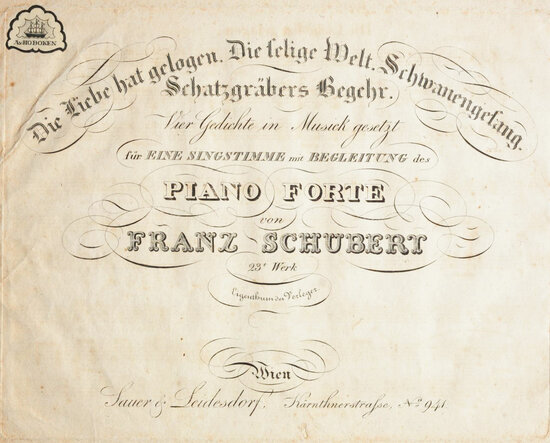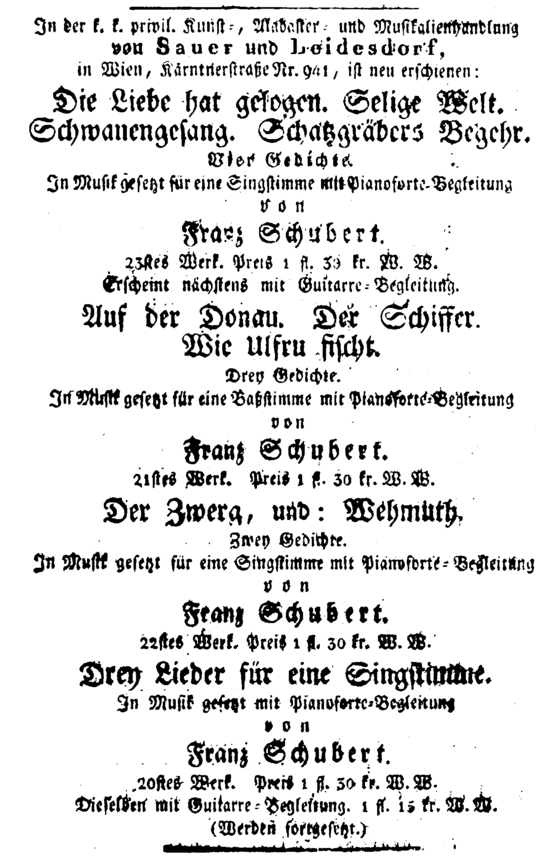
Artists: Peter Schöne - Baritone | Boris Cepeda - Piano
Recording: Tuesday, 13. January 2009 | Berlin
Lyrics
"Wie klag' ich's aus
das Sterbegefühl,
Das auflösend
durch die Glieder rinnt?
Wie sing' ich's aus
das Werdegefühl,
Das erlösend
dich, o Geist, anweht?"
[Es klagt', es{Schubert: Es klagt', es}] sang
Vernichtungsbang,
Verklärungsfroh,
Bis das Leben floh.
Das [ist{Schubert: bedeutet}] des Schwanen Gesang!
About poem
Johann Chrysostomus Senn veröffentlichte sein Gedicht Schwanenlied 1838 in Gedichte von Johann Senn in Innsbruck, in der Wagner'schen Buchhandlung.
▪ Digitalisat in der Österreichischen Nationalbibliothek, S. 15
Am Ende des Gedichtes steht im Gedichtband ein Hinweis auf die Komposition Schuberts.
In Musik gesetzt von Fr. Schubert.
About music
Johann Senn and Franz Schubert were friends. Together with Johann Mayrhofer, Franz von Bruchmann, Leopold Kupelwieser, and Ernst von Feuchtersleben, they formed a circle of friends who, secretly and sometimes openly, "reputed" and thereby "attracted the attention of the secret police". Senn was accused of criticizing the regime of Metternich. He was imprisoned in 1820 for his revolutionary ideas and later deported to Tyrol.
The friends were involved when Johann Chrysostomus Senn was arrested in 1820.
Report from Pol. Ob. Coars [Police Chief Commissioner] Ferstl about the stubborn and insulting behavior that Johann Senn, born in Pfunds in Tyrol and involved in the Burschenschaft student association, exhibited during the search of his apartment and the seizure of his papers ordered by the authorities, and where he used expressions such as "he did not care about the police," then: "the government was too stupid to be able to penetrate his secrets." His friends who were with him, the schoolteacher from Rossau Schubert and the lawyer Steinsberg, then the students who came at the end, the private law student Zechenter from Cilly and the son of the merchant Bruchmann, a fourth-year law student, joined in with the same tone and attacked the acting official with verbal insults and abuse. Pol. Ob. Coar. Ferstl makes the official report so that this excessive and criminal behavior can be appropriately punished. The P.O.D. (= Police Chief Directorate) notes that consideration will be given to Senn's constitution in response to this report. In addition, those individuals who behaved rudely towards the Pol.O.Coar. during the visit to Senn will be summoned and threatened with severe warnings. The Hofsecretär Steinsberg as well as the merchant Bruchmann will also be informed about their sons' behavior.2.1
Due to Schubert's sudden death in 1828, the group of friends fell apart.
In 1822, Schubert set to music Schwanengesang D 744 and Selige Welt D 743 by Senn. He received the poems from his friend as an autograph.
Source situation
Here you can find some informations about sources: Thematisches Verzeichnis von Otto Erich Deutsch
Manuscript location: Staatsbibliothek zu Berlin, preussischer Kulturbesitz
The publication procured 1823 Sauer & Leidesdorf in Wien as Opus 23 - 3 | Publisher Number 367
Scores
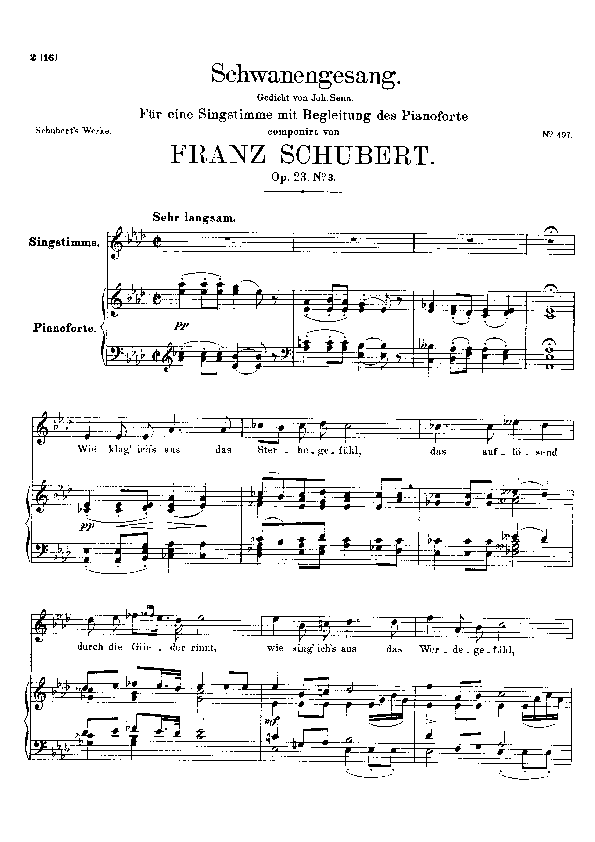
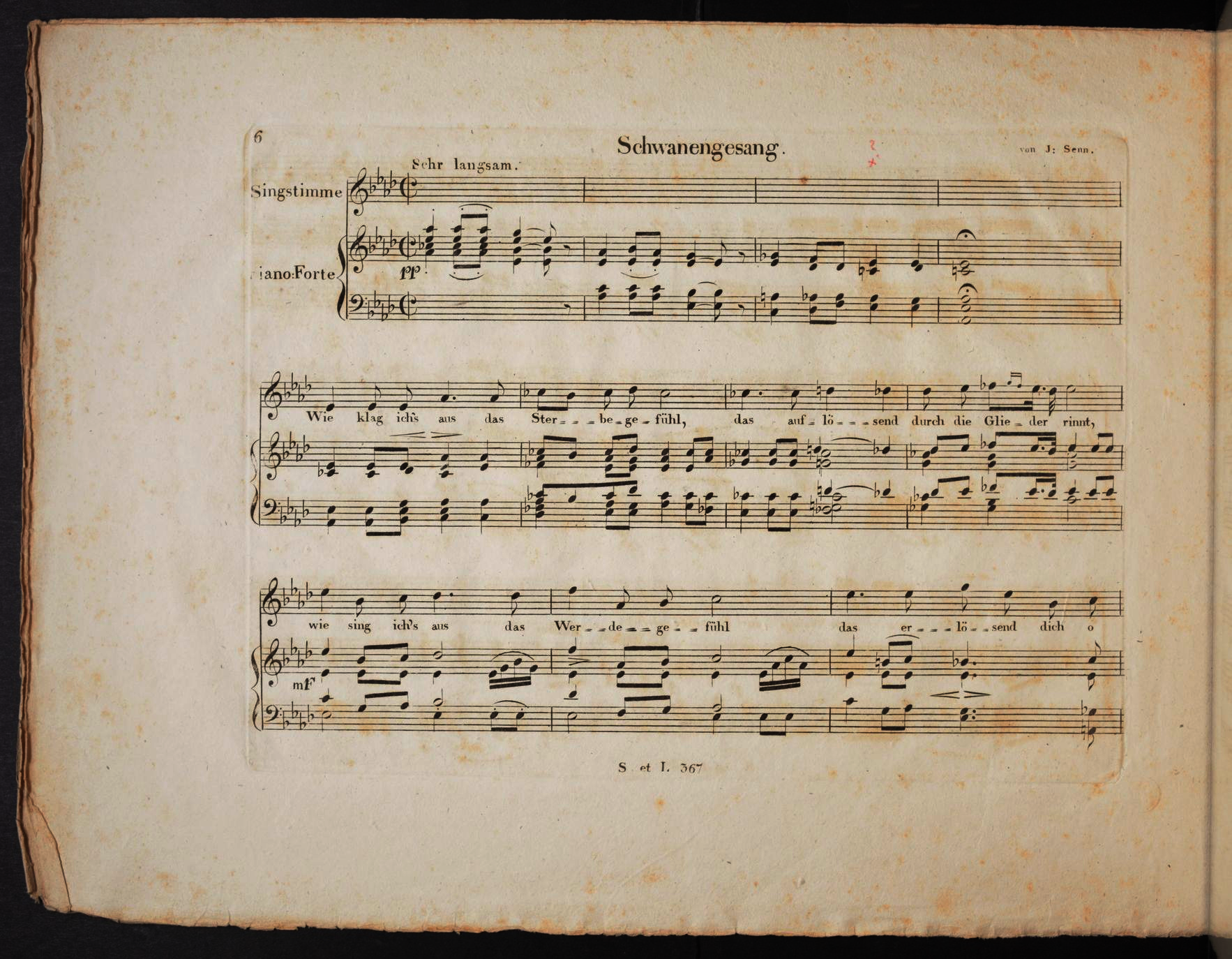
Sources
2.1 Neue Tiroler Stimmen 1907 Ausgabe Nr. 167 vom 24. Juli
2.2 Biographisches Lexikon des Kaiserthums Oesterreich Band: 34 (1877)
5.1Sheet music source @ imslp.org: Schwanengesang
6.1Lyric source and other compositions: www.lieder.net
7.1Otto E. Deutsch: Schubert. Thematic Catalogue of all his works in chronological order - Page 448
Written by: Peter Schöne
